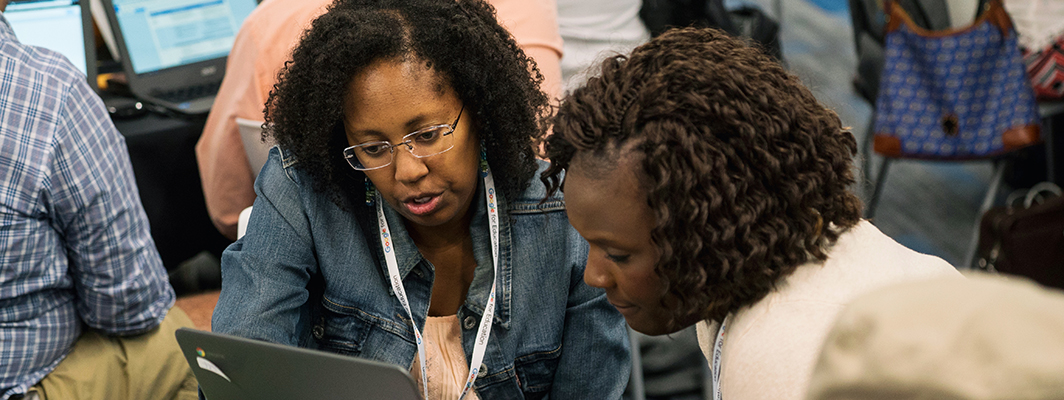
At the top of the list, you will probably find that successful professional learning is ongoing, personalized, and of high quality. These components are naturally embedded within effective coaching and/or mentoring. Many school districts offer a coach or mentor to new teachers, and some even offer support to veteran teachers; however, most do not offer similar services to the coaches themselves.
When I made the decision to leave the classroom to become a learning strategist at my school, there was no training, workshops, or support for my role. I had to learn on the job, which often felt like building a plane as it was flying with missing or mislabeled parts and tools. There had to be a better way; after all, learning strategists and instructional coaches can have an exponential effect on student outcomes if they are effective.
I served my Title 1 school as a sixth grade math teacher for four years and as a learning strategist for nine years before making a move in 2018 to the Southern Nevada Regional Professional Development Program, which provides professional learning to the five southern counties of Nevada, as a regional math trainer.
This year, I began coaching strategists and coaches, filling a need that has long existed. An essential aspect of being a coach is building and strengthening relationships; it is difficult to work through areas that need improvement without trust and credibility.
“As a new instructional coach, I was overwhelmed by the expectations of my administration, the role overall, and my own list of expectations; I wanted to do an awesome job and I think I went into the position running with lots of ideas,” said Gail Sabbs, an instructional coach at Sawyer Middle School in Las Vegas. “It was so nice and comforting to have a coach/mentor outside of my school to bounce ideas with me, to share frustrations, and more importantly, to receive a different point of view. Meeting with a coach/mentor every week helped me to enter my new role by walking with a clear direction and preserving my mental health.”
In addition to creating and facilitating a variety of other workshops and providing professional learning opportunities to schools, I mentor 10 strategists or coaches and five teacher leaders. Some have chosen to meet weekly, some bi-weekly, and others are “on call,” reaching out when they need to schedule a meeting. Our time together is directed by them—they decide what is most pressing to work through, what they need to talk out, what problems need to be solved, or if they need feedback. We have brainstormed the development of professional learning sessions, how to debrief an observation, how to walk that fine line between advocating for teachers and meeting the needs of administration, and ideas for family engagement and community partnerships, along with several other situations and tasks that strategists and coaches often need to address to make their school better for students and families.
“In my work as an instructional coach for mathematics in a K-12 school, I encounter many different situations which require various levels of expertise,” said Patrick Fitzgerald, an instructional coach at Somerset Academy Losee in Las Vegas. “To keep up with these demands, I need resources beyond what my school can offer. It’s important that I have a network of professionals to talk with that understand these challenges. That’s what I have found in all of the mentoring sessions—I can discuss any and all issues with confidence and discretion, and I have a sounding board for my ideas. In one conversation I can get advice and suggestions; I can hear how other schools have handled similar situations; I can get leads on research that I would not have time to find on my own. Facilitators can often work in isolation, and we need resources to keep us moving toward our goals.”
My soul was lifted and energized when I applied and was accepted to be a community manager within Digital Promise’s Professional Learning Community (PLC) for Coaches. I am constantly looking for effective ways to build my network and learn from my colleagues across our nation; this PLC will serve that purpose. My own coaching knowledge and skills will strengthen by engaging in new opportunities provided by this like-minded community, which in turn will allow me to better serve my colleagues. What may seem mundane to one coach may be an innovative idea to another; this is the exponential growth that can occur when educators come together driven by a common purpose and goal.
After being an educator for 20 years, I have seen teacher leaders, learning strategists, and instructional coaches not leveraged to the full extent of their capacity; this is a missed opportunity. They are a critical component of a school site that can heavily impact student outcomes. Let’s provide them the ongoing, personalized, high-quality training and support needed to become effective in this role.
Digital Promise’s PLC for Coaches launches later this month. Sign up to join the community.